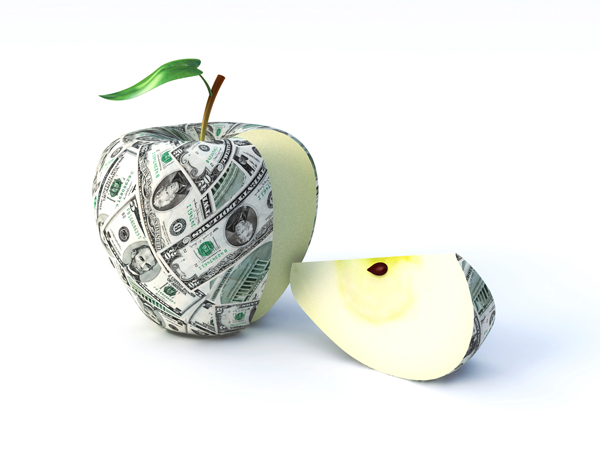A couple of bad reviews on Yelp can put a restaurant out of business. It’s called a reputation crisis. Registered dietitians (RDs) face a reputation crisis due to the actions of their parent organization, the Academy of Nutrition and Dietetics (AND). AND is being called out for having close ties to the food industry. For their nutrition conferences and events, AND accepts sponsorship from big food and beverage corporations. Sponsorship gives the appearance of conflict of interest, and in reputation management, perception is everything.
It started last October when lawyer/author Michele Simon released a report, “And Now a Word from Our Sponsors.” She called out AND for having close ties to Coca-Cola, PepsiCo, Mars, and the like because those companies sponsor their continuing education activities. Soon, celebrity nutritionists like Marion Nestle and Dr. Mercola were writing about “How the Junk Food Industry Controls Registered Dietitians.” And then, this month, another incident made the New York Times, Food Politics Creates Rift in Panel on Labeling. More negative press. I fear AND has sullied my unblemished reputation.
Actually, the problem is bigger than the Academy. It’s a problem bred by our capitalist society. As long as public health agencies and non-profits are poor while private corporations are flush, public-private partnerships between health groups and big business will remain. Diet Coke partners with NIH to sponsor The Heart Truth® campaign to raise women’s awareness of heart disease (despite some association between diet soda and heart health); Wal-Mart supports Michelle Obama’s “Let’s Move” initiative while driving their employees to taxpayer assistance programs; McDonald’s sponsored the 2025 London Olympics undeterred by the obesity crisis. This is how the world works today.
AND says it has a “growing interest in building relationships between industry and non-governmental organizations.” Roberta Anding, a spokeswoman for the Academy, said the public-private partnerships offer several advantages that can enhance public health. The groups can share ideas, financial resources, advocacy expertise and distribution systems, thereby reaching more people than either group could do alone. I wish she cared more about my good name.
Not for one minute do I think RDs are influenced by Big Food; they are actually one of the few groups who rise above the fray. No, it’s not always easy to figure out what is, and is not, healthy to eat; with the difficulty of doing diet studies in real life and scientific evidence so rapidly changing, not to mention flawed studies sensationalized by content marketers, it’s a wonder even RDs get it.
Still, it stands to reason that AND should give the boot to global mega-corporations. Keep the healthy brands, but bury the big names. For instance, Coca-Cola has to go as a sponsor, but Odwalla, one of their brands, can stay because the product is actually healthy. Same goes for ConAgra, they’re out, but Healthy Choice can stay. Case-by-case, there are criteria. It won’t be easy but we should try. And let’s address RDs with strong ties to the food industry on work groups. After all, a good reputation is more valuable than money.
Also Read:
Major Organic Brands, Like Kashi and Naked, Funding Anti-GMO Labeling Campaigns

